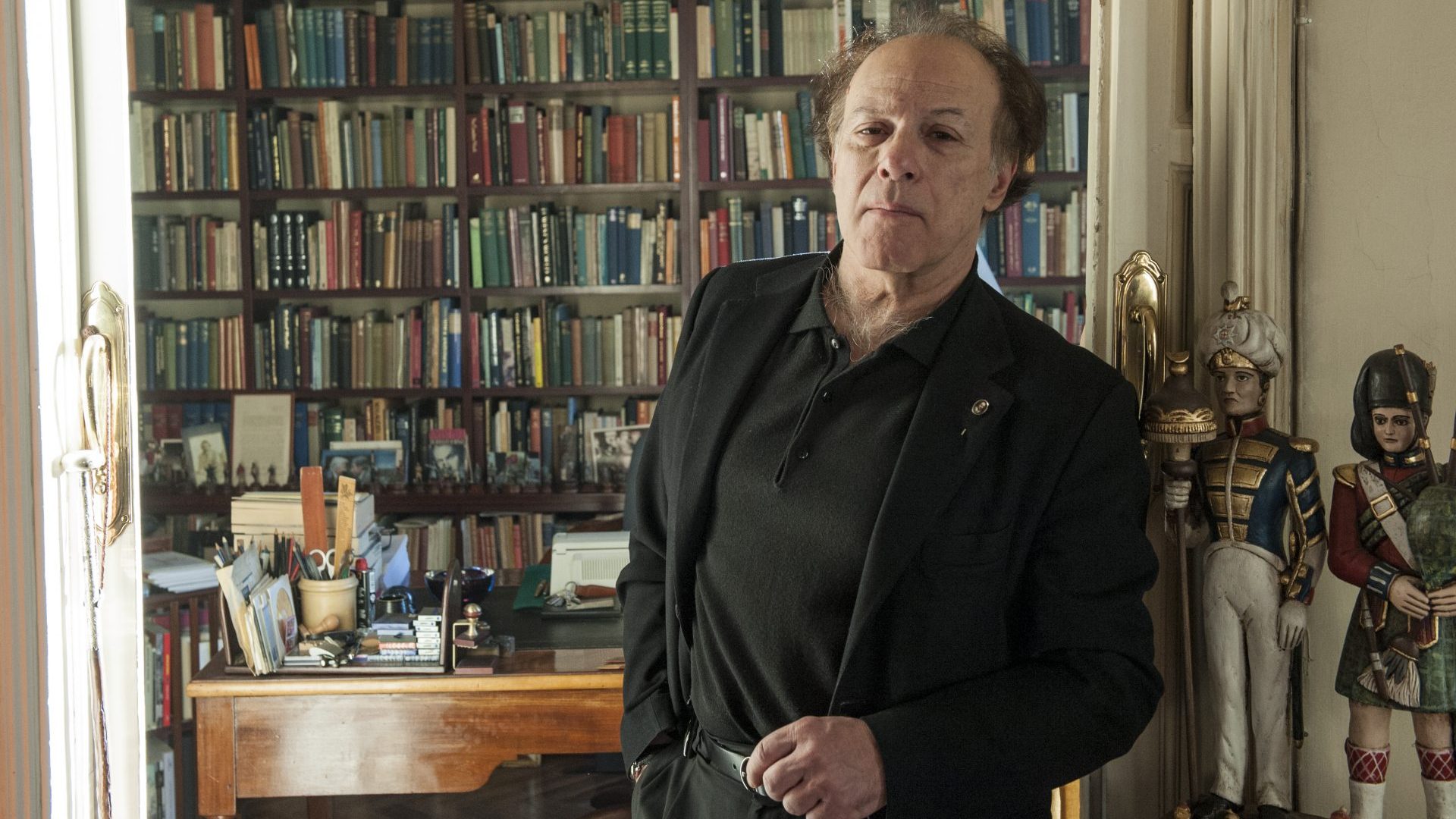One should never tell anyone anything or give information or pass on stories or make people remember beings who have never existed or trodden the earth or traversed the world or who, having done so, are now almost safe in uncertain, one-eyed oblivion,” wrote Javier Marías as the opening line of his 2002 novel Fever and Spear, the first of his Your Face Tomorrow trilogy.
It’s a curious way for a novelist to begin a novel, but Marías, who died on September 11, nine days short of his 71st birthday, was almost as curious a novelist as he was a curious human being. Teaching eels the cha-cha-cha would be easier than attaching definitive labels to Javier Marías and his work, but here goes anyway.
His books are renowned for their long, ruminative sentences that immerse the reader in elegant, philosophical prose yet for the last two decades of his life he also wrote a snappy weekly opinion column for the Sunday edition of the Spanish national newspaper El País. He had two apartments in Madrid, one furnished entirely in black, the other in white. He had no internet connection in either and wrote everything on an ancient Olympia Carrera de Luxe typewriter to which he was so attached he said that if it ever gave up the ghost he would have to give up writing.
He communicated almost exclusively by fax, his only concession to the digital age coming late in life when he finally consented to a mobile phone in order to file his newspaper column by WhatsApp – sending the editor photographs of his typewritten pages. His book manuscripts were handed to a long-suffering assistant, scanned page-by-page and turned into PDFs.
A ferocious smoker, he was known to turn down international awards if the trip to receive them would involve too much time on aircraft and in buildings where smoking was forbidden. He lived on a diet consisting mainly of cigarettes, Coca-Cola, cigarettes, serrano ham, Manchego cheese and cigarettes.
For all his eccentricities, Marías was Spain’s greatest contemporary literary figure. His 16 novels have sold something approaching nine million copies worldwide and have been translated into 46 languages. He numbered among his admirers Salman Rushdie, Orhan Pamuk, Roberto Bolaño and JM Coetzee, and it will be an eternal mystery that he was never awarded the Nobel prize for literature.
“Javier Marías was the best writer in Spain,” said the novelist Eduardo Mendoza on learning of his death, while the Spanish prime minister, Pedro Sánchez, tweeted that it was “a sad day for Spanish letters as Javier Marías leaves us, one of the great writers of our time”. Even Real Madrid Football Club released a statement marking the death of “one of Spain’s and universal literature’s most important writers”.
Born in 1951, Marías’s life spanned the transition from fascist dictatorship to modern democracy. His mother, Dolores, was a literary translator and his father, Julián, a philosopher who fell foul of the Francoist state in 1939 when a friend turned his doctoral thesis, which included material critical of the Generalissimo, over to the police. Fortunate not to be executed, Julián spent time in prison, was banned from teaching and forced abroad for long periods in order to further his career, meaning portions of Javier’s childhood were spent in the US.
At the age of 17, he spent a transformative summer in Paris at the home of his uncle Jesús Franco, a film-maker behind cinematic landmarks such as Vampyros Lesbos, The Erotic Rites of Frankenstein and Swedish Nympho Slaves. In the French capital, Marías watched more than 80 films, thankfully not all by his relative.
Instead, he soaked up an entire American noir season at Cinémathèque Français, appeared as an extra behind Christopher Lee in Franco’s The Castle of Fu Manchu and wrote his first novel, the noir-inspired The Dominions of the Wolf, which would be published in 1971, when the author was still not yet 20.
A second novel followed two years later but then he abandoned his own fiction for six years as a literary translator. An Anglophilic reader since childhood – he credited Richmal Crompton’s William novels as key to his becoming a writer – Marías took on some of the most challenging works in English by writers such as Joseph Conrad, William Faulkner, Vladimir Nabokov and Laurence Sterne. His famously meandering 1759 novel The Life and Opinions of Tristram Shandy, Gentleman, is considered a translator’s nightmare, but at the age of 25 Marías produced what remains the definitive Spanish edition of the book. Immersing himself in Sterne’s masterpiece influenced his own style, in which he fully embraced the Sternian mantra, “I progress as I digress”.
Superficially Marías’s novels could be described as thrillers, as they often involve murders or espionage, but where genre writers keep the pages turning with plot twists, cliffhangers and pacy action sequences, Marías wanders off on apparently random existential diversions, dropping commas behind him to feed his parade of hungry clauses. It’s a style he called “roving” and takes a little getting used to, but it isn’t long before you realise his sentences are carefully crafted and contain not a single superfluous word. Colm Toibín once described Marías as a novelist masquerading as a philosopher, “all the more to fool the reader and cause great shock when the novel turns out to have a plot after all”.
“Cervantes or Sterne or Proust or, among more modern writers, Nabokov, Bernhard or Benet were masters of that textual roving”, Marías wrote, adding with wry self-awareness, “or if you prefer, masters of the digression, the tangent, the aside, the lyrical invocation, the rant and the prolonged autonomous metaphor.”
Such a digressive technique perfectly suited a novelist seeking to emphasise that life is as much about what doesn’t happen as what does. “We are made not only of what we did and accomplished,” he said, “we’re also made up of all the things we discarded, all the things we failed to do, all the things we did not dare do. That’s part of us. All the things you renounced. The woman you didn’t marry. The woman who said ‘no, I don’t love you.’”
For Marías there was as much significance in what isn’t there as what is. In his 1992 novel A Heart So White, beautifully translated like most of his English editions by Margaret Jull Costa, a long-serving security guard at Madrid’s Prado Museum attempts to set fire to Rembrandt’s Judith at the Banquet of Holofernes because after looking at the same painting for 25 years he realises he’ll never see the face of the servant on the left of the picture who has turned away from the viewer.
“Paintings show just what they show,” said Marías. “Novels do the same thing. The things that are not told in a novel will never be told, and the things that are will be told that way for ever.”
It is a pity that despite the efforts of Penguin Modern Classics and others Marías is not better known in this country, not least because he wrote about Britain, and England in particular, so well. In the mid-1980s he taught translation theory at Oxford University, inspiring his 1989 satire of academia All Souls in which Marías’s view of England is revealed to be many-layered and perceptive, couched in affectionate mockery of a nation whose people “never look openly at anything, or they look in such a veiled, indifferent way that one can never be sure that someone is actually looking at what they appear to be looking at”.
Living in Britain was a refreshing change from a Spain just emerging from the darkness of the Franco years. To Marías’s frustration, the transition had been made under the dubious condition of the pacto del olvido, the “pact of forgetting” that ensured nobody would be held to account for the crimes of the fascist regime. “The promise of living in a normal country was far more alluring than the old quest for an apology or the desire for reparation,” he said.
All this could explain why Marías relished being the King of Redonda so much.
A tiny, uninhabited island in the Caribbean, Redonda’s monarchical dynasty began in the mid-19th century with the Montserrat-based father of the pioneering science-fiction author MP Shiel, and passed through his son to a series of writers until the crown was bestowed upon Marías as King Xavier I in 1997, despite a competing claim by a publican who said he had been given the title by a previous incumbent in lieu of an unpaid bar tab.
A benign absolute monarch relishing an opportunity to create his own utopia, Marías bestowed dukedoms on many of his cultural peers, including Pedro Almodóvar, AS Byatt, William Boyd and WG Sebald, and instigated a literary prize, the Kingdom of Redonda Award, won by a range of writers from Philip Pullman to Alice Munro. All of it administered, of course, largely by fax.
The life of Javier Marías spanned extraordinary times and produced an extraordinary literary legacy. If his work was defined by Sterne’s “I progress as I digress”, as a person he lived true to the maxim he often cited by another of his literary heroes, Miguel de Cervantes: “have patience, and keep shuffling the cards”.
A EUROPEAN LIBRARY
53. TRAVELS AS A BRUSSELS SCOUT by Nick Middleton, Weidenfeld & Nicolson, o/p
In 1995, geographer Nick Middleton set out to explore the countries of the European Union. There were only 15 member states back then, and Brexit existed only in the fevered dreams of a few gibbering crackpots, giving the book an innocent, antediluvian feel. Middleton is a perceptive traveller, as happy confirming national stereotypes as debunking them, from Austrians’ obsession with death to the lawless abandon that overcomes Rome’s drivers whenever they put the key in the ignition. Long out of print now, it’s easy enough to track down second-hand copies of a book that would grace the shelf of any Europhile.




